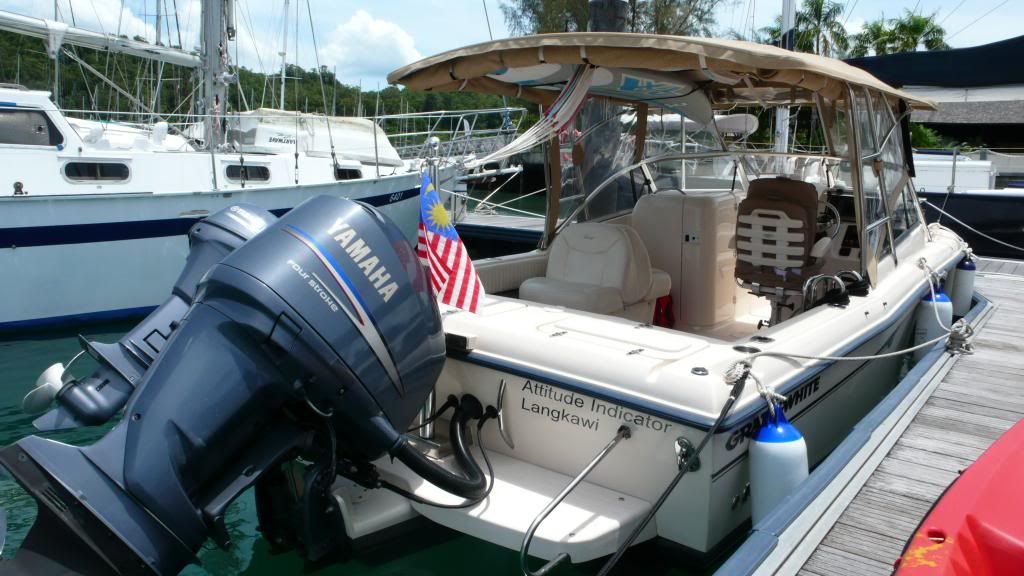- Joined
- Jun 2, 2011
- Messages
- 18
- Reaction score
- 0
- Points
- 0
- Location
- Boat Lagoon Resort, Phuket, Thailand
Hi guys,
There have probably been other threads regarding "Phase Separation" with E95, but I couldn't find them.
I have a GW225T over in Phuket, Thailand. Great little boat. Unfortunately the Thai's are now using ethanol in their 95 octane.
I have to haul the boat and leave it on the hardstand for 2 months at a time, while I'm away at work in Abu Dhabi (I'm a pilot).
After 2 months, I then return home to Phuket, splash the boat and use it off and on over the next 4 weeks, before hauling it again.
Question: What can be done to minimize phase separation in the fuel that I leave in the tanks (about 50gal....50%) for 2 months...???
I've been using Startron Fuel Stabilizer and Startron Fuel Tank Cleaner. I've also replaced the factory Yamaha Fuel Water Separator/Filter
with a RACOR Fuel Filter/Separator.....with the clear glass bowl at the bottom. Fuel in the bowl appears to be darker than normal......
I'm guessing this isn't good. I really want to avoid fouling the fuel lines and injectors with gunk.....if it's there.
I'm thinking about adding a 2nd "in-line" RACOR filter/separator and carry a lot of spare filters.
Any suggestions would be greatly appreciated,
Thanks
Ian Mitchell
Phuket, Thailand



There have probably been other threads regarding "Phase Separation" with E95, but I couldn't find them.
I have a GW225T over in Phuket, Thailand. Great little boat. Unfortunately the Thai's are now using ethanol in their 95 octane.
I have to haul the boat and leave it on the hardstand for 2 months at a time, while I'm away at work in Abu Dhabi (I'm a pilot).
After 2 months, I then return home to Phuket, splash the boat and use it off and on over the next 4 weeks, before hauling it again.
Question: What can be done to minimize phase separation in the fuel that I leave in the tanks (about 50gal....50%) for 2 months...???
I've been using Startron Fuel Stabilizer and Startron Fuel Tank Cleaner. I've also replaced the factory Yamaha Fuel Water Separator/Filter
with a RACOR Fuel Filter/Separator.....with the clear glass bowl at the bottom. Fuel in the bowl appears to be darker than normal......
I'm guessing this isn't good. I really want to avoid fouling the fuel lines and injectors with gunk.....if it's there.
I'm thinking about adding a 2nd "in-line" RACOR filter/separator and carry a lot of spare filters.
Any suggestions would be greatly appreciated,
Thanks
Ian Mitchell
Phuket, Thailand




